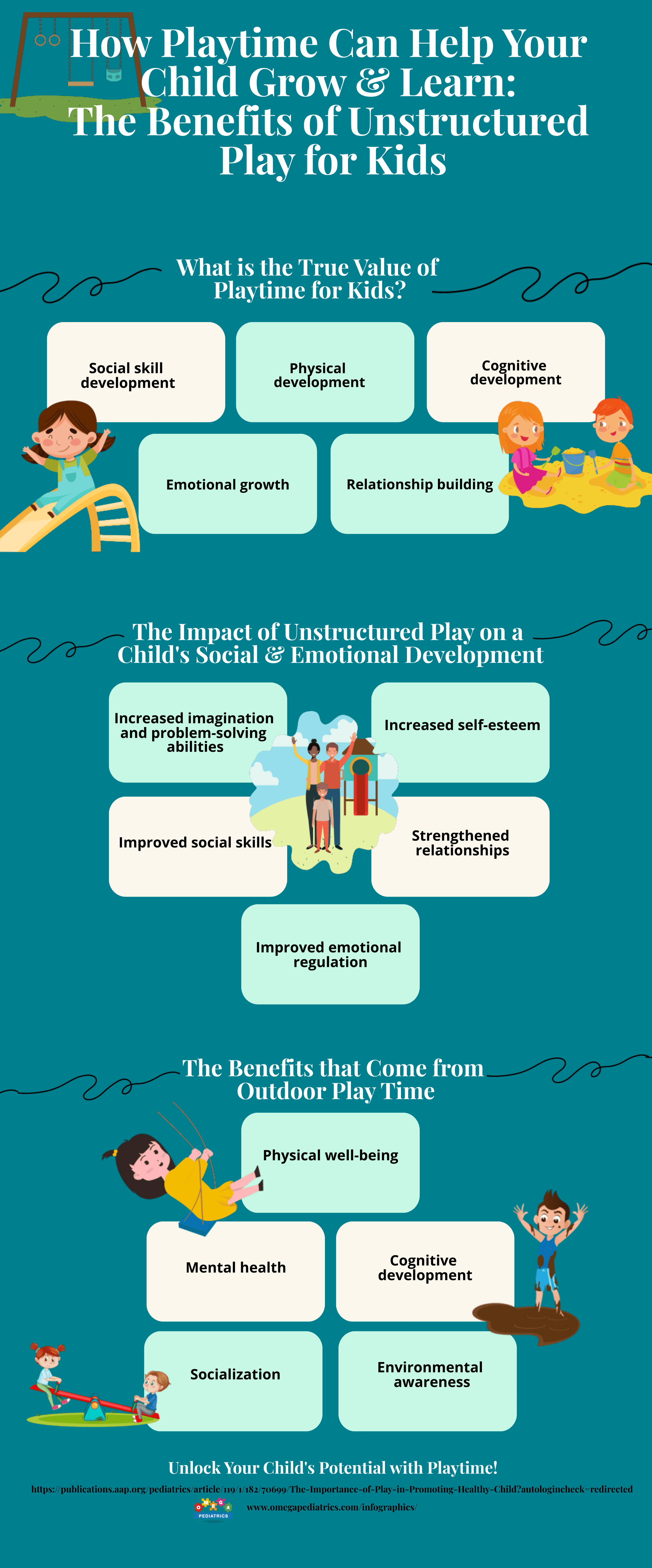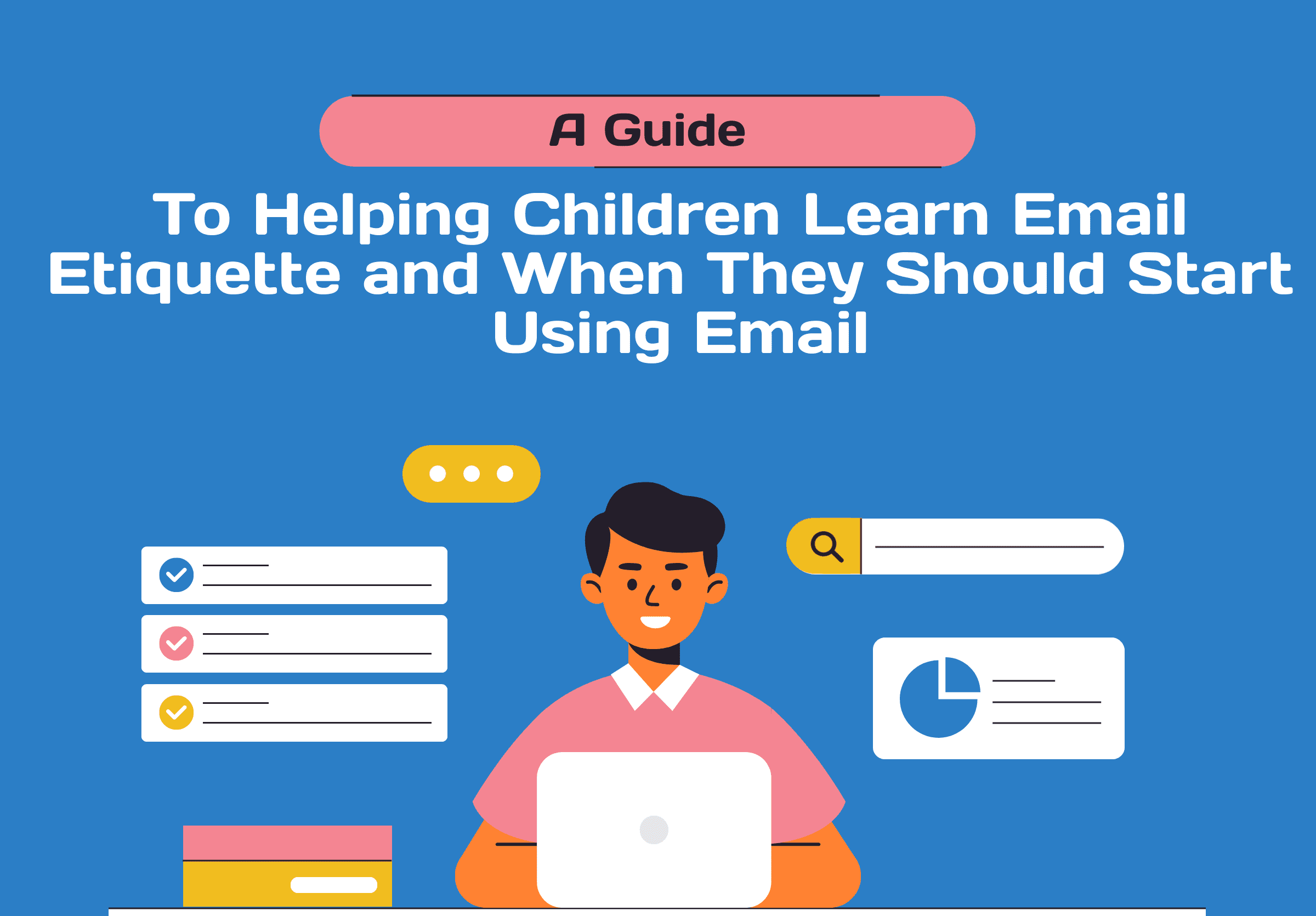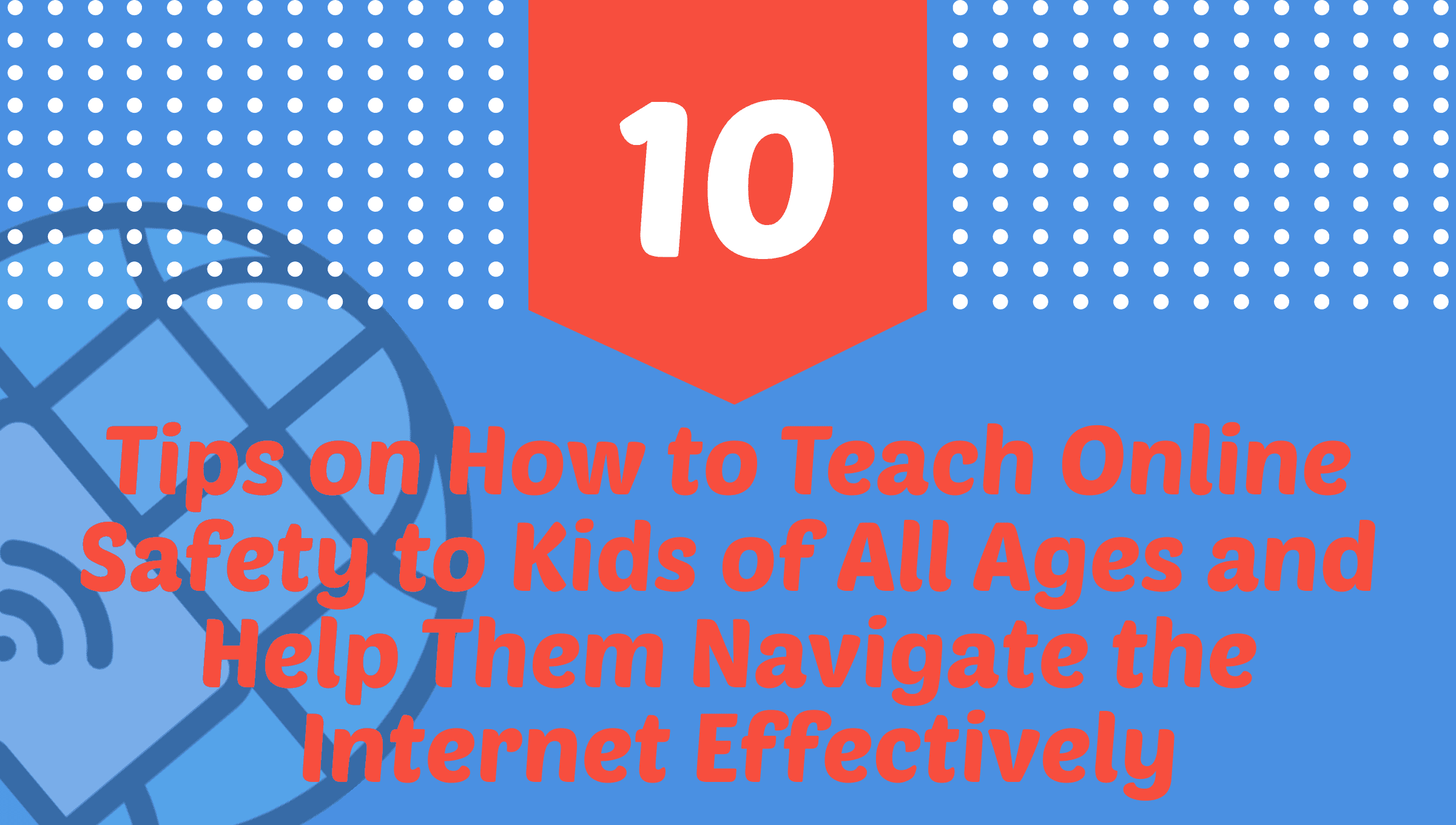
What is the True Value of Playtime for Kids?
- Social skill development: Playtime gives kids the chance to engage with others and hone vital social abilities including cooperation, communication, and problem-solving.
- Physical development: Physical activity is a key component of many forms of play and is crucial for kids’ general health and wellbeing. Children can improve their strength, balance, and coordination through active play.
- Cognitive development: Play may encourage children’s imaginations and creativity as well as their memory, attention, and problem-solving abilities.
- Emotional growth: Playtime can give kids the chance to safely and healthily express and manage their emotions. They may grow emotionally intelligent, self-aware, and resilient as a result of this.
- Relationship building: Playing with family, friends, or carers can help to fortify bonds and foster stronger relationships.
The Impact of Unstructured Play on a Child’s Social & Emotional Development
- Increased imagination and problem-solving abilities: Children can utilize their imagination and creativity to create new games, tales, and activities during unstructured play. They can learn how to solve problems and come up with original solutions thanks to this.
- Improved social skills: Children can connect with friends, negotiate rules, and develop social skills including communication, cooperation, and conflict resolution during unstructured play.
- Improved emotional regulation: Children can express and regulate their emotions in a safe environment during unstructured play. Children can learn to recognize and control their emotions, create coping mechanisms, and increase their resilience via play.
- Increased self-esteem: As kids explore their interests, take risks, and overcome problems during unstructured play, they might develop confidence and self-esteem.
- Strengthened relationships: Children can learn to share, take turns, and collaborate in unstructured play, which can help them create great relationships with their peers.
The Benefits that Come from Outdoor Play Time
- Physical well-being: Children can be more active during outdoor playing, which can improve their physical well-being by boosting their strength, agility, and general fitness.
- Mental health: Being outdoors and breathing clean air can be good for a child’s mental health by decreasing stress and anxiety levels and enhancing feelings of well-being.
- Cognitive development: By activating the senses, fostering problem-solving skills, and encouraging vision and creativity, outdoor play can enhance cognitive development.
- Socialization: Children have the chance to engage with others, learn social skills, and form friendships when playing outside.
- Environmental awareness: Having youngsters spend more time outside can help them have a greater understanding of the natural world and a stronger need to protect and preserve it.
Developing Cognitive Skills Through Play
Picture this: your child, armed with nothing but a cardboard box and boundless creativity, transforms it into a spaceship hurtling through the cosmos. In this seemingly simple act, their cognitive gears are whirring, laying the foundation for problem-solving skills that will serve them throughout life. Unstructured play is the canvas where imagination paints the strokes of cognitive development.
But how exactly does this happen? Imagine your child’s brain as a bustling workshop, with each play session crafting neural connections and refining cognitive abilities. It’s a symphony of growth, where problem-solving, decision-making, and spatial awareness harmonize to create a cognitive masterpiece.
The Brain at Play: Neurological Insights
Now, let’s embark on a brief journey into the marvelous landscape of your child’s brain. Neuroscientific studies reveal that unstructured play is not just laughter and games—it’s a workout for the brain. As your little one engages in imaginative play, neurons dance, forming intricate connections in areas responsible for creativity, memory, and emotional regulation.
Think of the brain as a garden, and each play session as a seed of potential. Unstructured play waters the soil, nurturing a vibrant ecosystem of neural pathways. The result? A resilient, adaptable brain that becomes the launchpad for your child’s future endeavors.
Friendships and Beyond: Social Benefits of Unstructured Play
Beyond the solo adventures in play, there’s another layer of growth unfolding—social and emotional development. Picture your child navigating a make-believe world with friends, negotiating roles, and resolving conflicts. This isn’t merely child’s play; it’s the foundation of essential social skills.
Ever noticed how your child’s face lights up when they recount their playtime adventures with friends? These interactions are more than just stories—they’re the building blocks of empathy, communication, and cooperation. Unstructured play is the crucible where social skills are forged, preparing your child for the intricate dance of human connections.
Playtime Prowess: A Vital Element in Your Child’s Development
In closing, dear parents, I hope this journey into the realm of unstructured play has been as enlightening for you as it has been for me. As we witness our children at play, we’re not merely spectators; we are facilitators of growth, architects of futures yet to unfold. The benefits of unstructured play are profound—nurturing cognitive skills, fostering social connections, and contributing to physical well-being.
Now, consider this: as your child engages in play, what intricate landscapes are their minds exploring, and what resilient foundations are being laid for the challenges that lie ahead? The playground is not just a place for laughter; it’s a crucible for character and capability.



